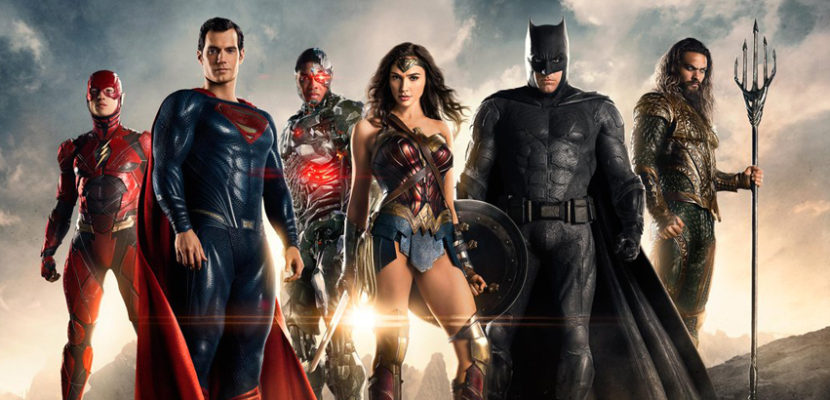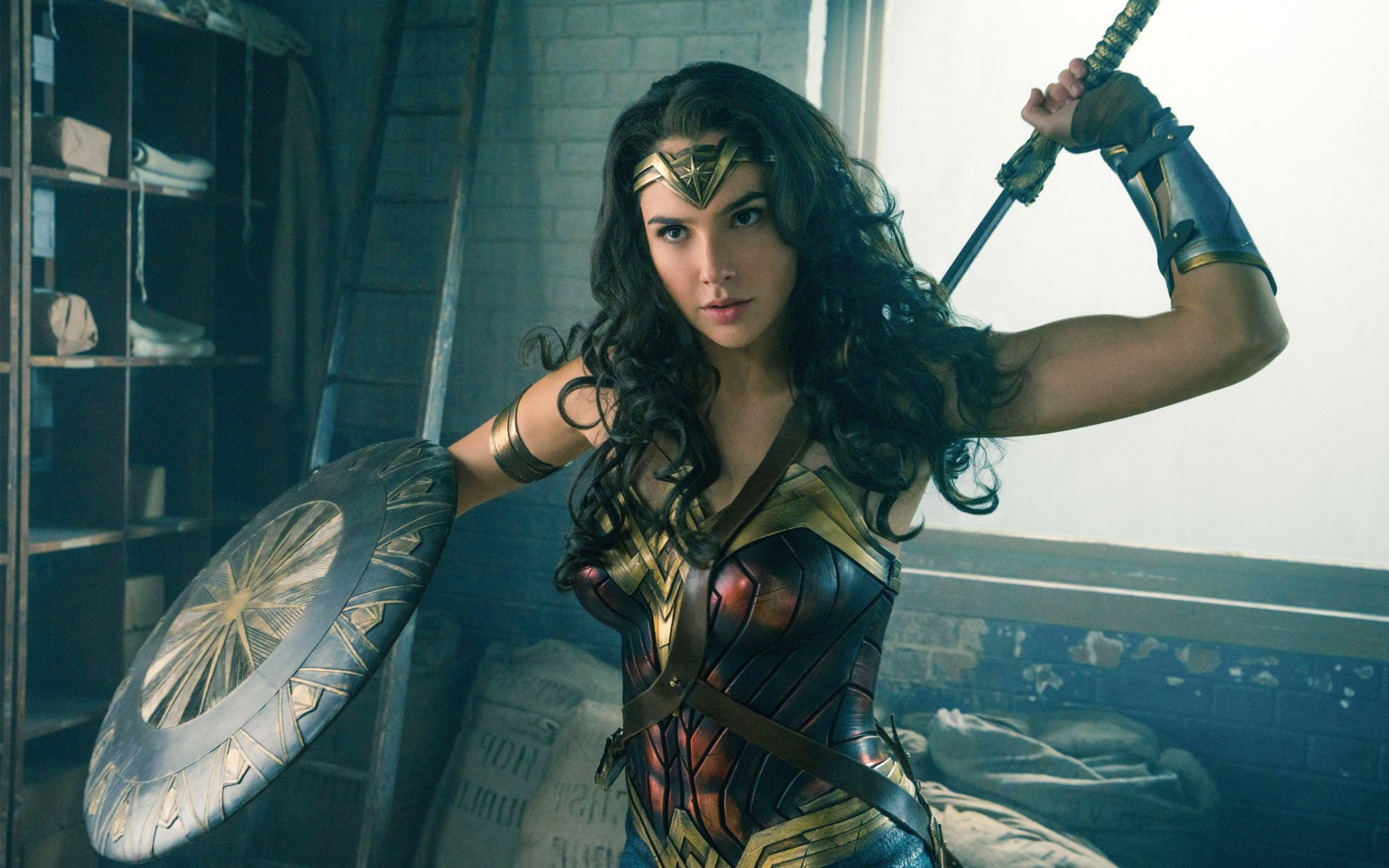The new Wonder Woman film had a huge challenge in front of it: pleasing both the feminists who were pushing for equal representation in superhero movies, as well as the misogynist action-lovers who assumed that a female superhero could never work as an action film. Despite the films’ faults – exacerbated by the disproportionate amount of scrutiny under which it fell – it performed admirably on both fronts.

Although I love comics, I never managed to develop a passion for Wonder Woman. I tended to think of her more as a female Superman than anything else – and I didn’t particularly care for him either. While my attention was focussed by the dark, gritty world of Batman, I missed out on the bizarre humour, sensitivity, kinkiness and action of Wonder Woman. Making a chick flick of Wonder Woman would have ruined it completely: instead, Jenkins balanced wonderfully on the edges of extreme violence and cautious optimism for the state of the world.
 Wonder Woman was created by the polygamous inventor and psychologist William Moulton Marston. A psychologist who by all accounts loved and respected his wife, another psychologist named Elizabeth, he imagined a superhero who would fight with love instead of brute force and took on her suggestion that it should be a woman. Their live-in partner was the physical inspiration for the very first Wonder Woman, her bracelets of power taken from those that Olive often wore. Elizabeth and Olive would go on to create their personal version of Themyscira, co-parenting their children by William after his death and living together well into old age.
Wonder Woman was created by the polygamous inventor and psychologist William Moulton Marston. A psychologist who by all accounts loved and respected his wife, another psychologist named Elizabeth, he imagined a superhero who would fight with love instead of brute force and took on her suggestion that it should be a woman. Their live-in partner was the physical inspiration for the very first Wonder Woman, her bracelets of power taken from those that Olive often wore. Elizabeth and Olive would go on to create their personal version of Themyscira, co-parenting their children by William after his death and living together well into old age.
Marston believed in a sexually liberated, powerful woman. He believed that the future belonged to these women: that they would be the ones to guide humanity to a more peaceful future. He was a dedicated feminist, in a time when the idea was virtually unheard of, especially in men. He believed that bondage and submission in both genders could be a loving and empowering experience, and long before Beyonce he knew that girls should run the world. He was remarkable in expressing complex ideals of gender as early as the 1930s.
In The American Scholar, he wrote:
Not even girls want to be girls so long as our feminine archetype lacks force, strength, and power. Not wanting to be girls, they don’t want to be tender, submissive, peace-loving as good women are. Women’s strong qualities have become despised because of their weakness. The obvious remedy is to create a feminine character with all the strength of Superman plus all the allure of a good and beautiful woman.
Sadly, Marston lost his life at a young age, after just six years of working on Wonder Woman comics. Control of her character moved hands several times from then, each writer taking her in a different direction, from whimsical to patronising and so on. When she was eventually accepted into the Justice Society of America (which would later become the Justice League), it was as their secretary.
Now that we have the background out of the way, let’s get into a spoilerific review!
I can only tell you my opinion of the film, which is that it was everything I hoped for. The Amazons were athletic and beautiful, their presence on screen defined by displays of muscle and feats of strength. Diana is no different, although her status as the youngest of the Amazons – and one who is part god – is shown in her naive impetuousness, out of which she often has to fight.
At points, her ignorance of the world at large is used for comic relief and sometimes it leads to profound moments of gender and societal satire. When Diana is taken shopping, she believes a corset to be a kind of armour, and doesn’t understand the concept of having to reign in her stomach. The main source of comedy in the film – the tenacious Etta Candy, played by Lucy Davis in a way that would have fit well into the Ghostbusters remake – remarks that only a woman with no stomach would say that. It’s easy to accept this as a straightforward statement about the foibles of gender, or you could read it as Diana’s insight into the ridiculous extremes that women have gone to for the purpose of pleasing men. This, obviously, not being a problem where Diana is from.
The entirety of Steve and Diana’s relationship seems based on an inversion of traditional sexist filmmaking. Shortly after his arrival Steve (played by real-life sex symbol Chris Pine) bathes in a rock pool, and Diana’s intense scrutiny of his body when he emerges is the perfect example of a female gaze. Confused about Steve’s watch, she asks, innocently enough, “you let that little thing tell you what to do?” Combined with Steve’s continued protestations that he is an “above average” specimen of a man, we get a wry feminist sense of humour which – I could be wrong – aren’t alienating to men. Later on, Steve will take on the role of most women in superhero and action films – the sacrificial lamb, whose demise spurns the hero on to fulfil their potential.
Although the film is largely propped up by a male cast, the women truly stand out. Aside from Diana herself, Etta Candy’s part – however small – is fantastic, providing the sassy female sidekick whose lack of fighting experience doesn’t prevent her from lifting a sword to help. Even the cast of villainy represented women, with the girls-can-be-evil-too murderous scientist who provides her male counterpart with the strength he needs to even attempt to fight Diana.
Diana is beautiful, of course, and strong. She is the woman who reclaims No Man’s Land, who as a child sets her heart on a weapon to kill gods, who resolutely does not do what she’s told and who gently, forcefully, pushes away unwanted physical contact. She realises early on that pitting men against women isn’t helpful, and that love not rage can save the world…however, she isn’t afraid to cut some bad guys down on the journey and dominate a battle scene.
Wonder Woman is by no means the perfect superhero movie – if one can be said to exist – but coming as it has after a decade-long deluge that would have been nigh-on impossible to achieve. Of course, everyone’s ideal superhero flick will be slightly different, but if you’re a fan of explosive action scenes, mythology, ground-shattering landings and fight scenes of dazzling strength interspersed with wit, you won’t go far wrong with Wonder Woman.
Bring on the Justice League movie..

Originally posted on Liverpool Girl Geeks
